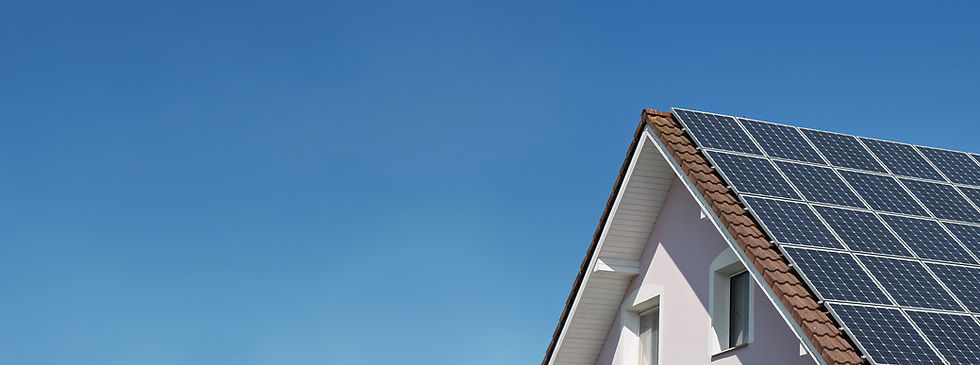
Renewable Energy
.jpg)



There’s never been a better time to switch to renewable energy
Renewable energy systems are very efficient, durable, clean and easy to use, typically requiring low maintenance and minimal management time.
Gibson & Goold has considerable expertise in renewable energy solutions, building on almost 50 years of experience in domestic and commercial heating & plumbing.
We can supply, install and maintain Biomass Energy Systems, Solar Energy Panels, Air & Ground Source Heat Pumps and renewable energy sources can be integrated in a Dual Source ‘Link-Up’ Heating System.

Air & Ground Source
Heat Pumps
Heat pumps are an efficient, self-contained alternative to traditional oil or gas heating systems.
There are two types - air source and ground source - each offering unique benefits. Using minimal energy, heat pumps transfer heat from the air or ground to warm your home or building, and can do the opposite to cool spaces, acting as a smarter air conditioning system.
The best renewable energy solution for your home depends on factors like energy usage, ground conditions, budget, and location.
Our experts will assess your property and recommend the perfect fit for your needs.
.jpg)
.jpg)
Biomass Energy Systems
Biomass heating uses wood pellets, chips, or logs as a renewable fuel source, offering an efficient and eco-friendly alternative to gas, oil, or electric systems. Biomass boilers can replace traditional systems to provide heating and hot water, offering similar reliability and control with reduced running costs, particularly when compared to oil or LPG systems. They are easy to maintain, durable, and environmentally friendly.
Our biomass boilers, supplied by ETA—the market leader in biomass technology—deliver outstanding efficiency, advanced controls, and user-friendly operation. With a range of systems from 7kW to 500kW, we provide sustainable solutions for homes, small businesses, and large commercial properties.
Installation is straightforward, with minimal disruption to your existing system, making biomass a cost-effective heating solution for today and the future.
.jpg)
.jpg)
.jpg)
Solar Energy Panels
Solar collectors use energy from the sun to heat water which is then stored in a hot water cylinder. The collector takes the form of panels or evacuated tubes generally fitted to the roof of a building.
Advanced coatings on the glazing of the panels maximise the absorption of heat. Solar thermal systems are great for generating hot water and can also be used very effectively to heat swimming pools.
Sunlight is free, so once the system is installed, your hot water costs will be reduced. Solar hot water is a green, renewable heating system and doesn’t release any harmful carbon dioxide or other pollutants.



PhotoVoltaic Panels
Solar PV provides an excellent alternative investment opportunity for both commercial premises and the agricultural sector.
Farms or businesses with high energy spend are able to make significant savings by reducing their electricity bills whilst simultaneously generating an income via the government Feed-in Tariff (FiT).
You can expect to achieve returns of up to 20% and your business will be future proofed against rising electricity prices.
Solar Thermal
Installing a Solar Thermal system can help you save on fuel bills, cut carbon emissions and enable you to take advantage of the Commercial Renewable Heat Incentive. Benefits include:
-
Solar Thermal systems can meet 100% of your hot water needs in summer; 70% over the year
-
Generates income: qualifies for Renewable Heat Incentive
-
Lighter carbon footprint: at least 750kg less CO² emissions per year
Benefits
-
Lower your carbon emissions and advance your green credentials
-
Minimal ongoing maintenance required
-
Benefit from a combined annual return on investment of up to 20%
-
Generate the FiT income, index linked to inflation for the next 20 years
-
Profit from the sale of unused electricity produced back to the grid
Dual Source ‘Link-Up’
Heating Systems
A linked heating system (also known as linked-up) combines various heat sources, such as solar panels, biomass boilers, conventional boilers, and heat pumps, to reduce fuel bills while maintaining the convenience of traditional heating.
By integrating these systems with a thermal store, different heat sources can work together seamlessly, like using a wood-burning stove for winter heating, solar panels for summer hot water, and a conventional boiler as backup.
This specialized system must be designed and installed by qualified heating engineers to ensure efficiency and safety.
Poorly set up systems may not deliver the expected energy savings and could be unsafe. At Gibson & Goold, we specialise in the design and installation of these integrated heating systems, tailored to your needs.


.jpg)
Home Energy Scotland Grant and Loan
The Home Energy Scotland Grant and Loan Scheme supports Scottish homeowners with grants, interest-free loans, or a combination of both to upgrade to clean heating systems and improve energy efficiency.
For clean heating systems like heat pumps, grants of up to £7,500 are available, with the option to add an interest-free loan of up to £7,500.
Energy efficiency measures, such as insulation, can receive grant funding covering up to 75% of costs, capped at £7,500. Additional funding can be supplemented with an optional interest-free loan, up to the maximum improvement cost.
Rural and island homes benefit from an extra £1,500 grant uplift for both clean heating and energy efficiency measures, allowing households to claim up to £18,000 in grant funding.

Renewable Heat Incentive
The Renewable Heat Incentive (RHI) is a government-backed scheme that rewards businesses for using renewable energy to generate heat, offering guaranteed returns of 10-25% over 20 years for installing and utilising renewable energy systems.
At Gibson & Goold, we help businesses access RHI funding, ensuring you benefit from both savings and income generated through renewable heating systems. The incentive is based on the heat generated, calculated per kWh, with rates depending on the size of the system.
In domestic systems, wood-pellet biomass boilers are commonly used, with pellets automatically fed into the boiler and burned to heat water, which is then stored in a thermal store for use in radiators, underfloor heating, or hot water.


.jpg)